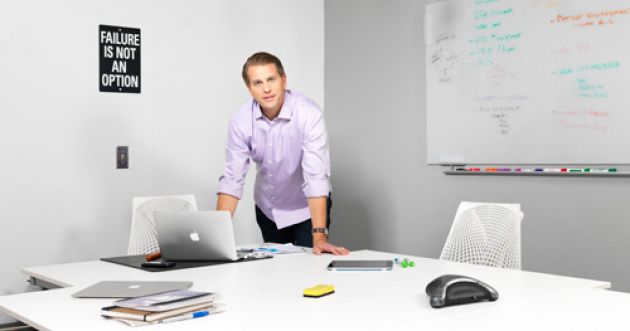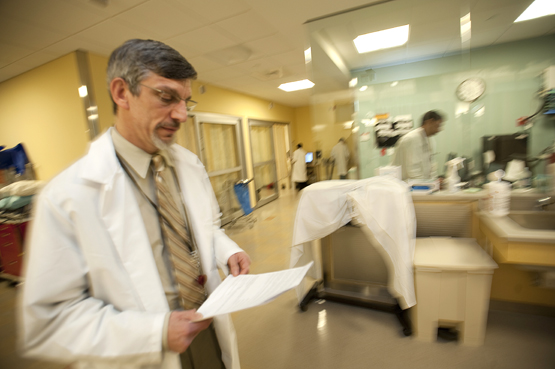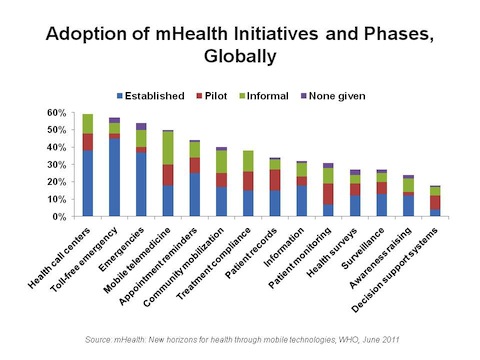
A major theme emphasized on this blog is my admiration for entrepreneurial thinking. Few things fire me up like witnessing the purest form of capitalism: that is, people smart enough to recognize opportunities for disruption and arbitrage; people creative enough to seize them; and people courageous enough to risk it all rather than run with the herd. Consequently, I was beyond pleased to discover that a good friend from my Duke days has been successfully pursuing an entrepreneurial path in one of today’s most critical and controversial sectors – the health care industry.
For me, it’s the stuff of inspiration. The friend in question is a guy named Sterling Lanier, a self-described “serial entrepreneur,†whose career has included ventures in almost anything you could imagine.
Inc. Magazine’s David H. Freedman recently profiled Lanier in piece entitled “The Startups Saving Health Care.†After reading the article and discussing with Sterling, it quickly became clear that his personal story – and the broader narrative about similar health care entrepreneurs – epitomizes what I believe are the true heart and soul of American Exceptionalism. I’m not talking about the usual platitudes about “our freedoms,†“traditional values†and “the genius of the Founding Fathers.† I am talking about the ingenuity and fortitude of individual Americans who drive their lives and the industries around them by seeing the word “unsolvable†as a synonym for “opportunity.†And that, (I can’t believe I’m writing this), sums up my goofball friend, Sterling Lanier, right there.

Sterling Lanier – Entrepreneur in Action . . .
As Mr. Freedman’s article explains, a combination of factors have made America’s health care system increasingly look a lot like a disaster, riding a debacle, and headed into a ditch. Our costs are staggering and unsustainable (roughly one fifth of the entire economy) – far higher than in other industrialized nations – and yet America’s health care outcomes tend to lag well behind our international peers. Meanwhile, attempts at reform seem mired in a political system that has become little more than a pointless tug of war between efforts to enlarge government entitlements on the Left and attempts to stonewall virtually everything by the Right.
So here’s where Lanier enters the picture. Instead of pointlessly ranting either about the President or the Tea Party, he decided to side-step politics entirely and began inventing practical technologies (sometimes referred to as “Mhealthâ€) capable of cutting costs, improving patient wellness and ultimately charting a path toward to a system that might do what no politician has yet managed to accomplish: actually get the job done.


Like most visionaries, Lanier approaches complex problems by seeking connections that elude traditional thinkers. On the one hand, enormous inefficiencies, wasteful practices and a rapidly growing retirement population are driving costs into the stratosphere. On the other, there are countless frustrated patients and providers bogged down in multiple health care systems: e.g., uninsured patients seeking primary care from emergency rooms; traditional Medicaid patients; newly insured patients covered through a federal or state ObamaCare exchange; employer ensured patients and Medicare patients. That depiction only just scratches the surface. Facing these daunting odds head-on, Lanier’s first solution was to develop a mobile app he calls “Tonic†which, as Freedman explains “made it easy–almost fun–for patients to provide information about themselves and their health.â€

What Lanier recognized was that ALL of the difficulties crippling America’s health care system stem from the same fundamental problem: a lack of accessible information. Patients are less likely to tell providers critical details when forced to wade through endless and complicated forms. Providers end up ordering costly (yet frequently needless) tests that could be avoided were they to know more about their patients’ histories. Better informed hospital administrators make fewer mistakes, are more likely to be paid (either by patients, insurance companies or the government) and are generally less subject to lawsuits. And critically, organized data is the best tool government – and private insurers – have when it comes to cutting waste, fraud and abuse. Put simply, there is not a single part of the medical ecosystem that doesn’t benefit from improved information efficiency.

Although there are likely many other examples one could cite, Freedman offers several excellent specific line items to demonstrate just how dramatically the American health care system could be improved if apps like Lanier’s become increasingly common:
- Mobile apps are excellent at reminding patients to take their medications, helping doctors and pharmacists monitor consumption and in preventing potentially dangerous combinations of pharmaceuticals. The New England Healthcare Institute, a policy research think tank, has calculated that this so-called nonadherence is an issue for up to half of all patients, at an annual cost of nearly $300 billion in the U.S. alone.
- Almost everyone is averse to filling out and then tracking information when it’s presented in long boring forms. Hence Tonic, by making the process easy for everyone, greatly increases the probability that the right information ends getting where it needs to go. According to the Deloitte Center for Health Solutions, efficiency improvements of the kind that Tonic is offering should be able to cut $305 billion in health care costs by 2021.
- Mhealth devices, particularly as they grow more advanced, will also be excellent tools for catching early warning signs and directly informing physicians before serious health issues arise. Examples here would include heart rate, blood pressure, brain wave activity and numerous other vital signs – even an individual’s level of exercise and adherence to a healthy diet. Experts estimate the resulting behavioral changes could result in an additional $130 billion in savings.
Regardless, with numbers like these it’s not surprising that technology analysts expect the Mhealth industry to achieve annual revenues of $23.5 billion by 2018.

So the next time you hear someone griping that ObamaCare is some sort of plot to turn us all into socialists, whether you agree or not, take a moment and tell them the story of Sterling Lanier – an All-American innovator following in that beautiful 100% CAPITALIST tradition of taking a difficult situation and figuring out how to turn it into a very HEALTHY profit – in every sense of that word.



1 Comment
Glenn Fusonie
I do not wish to discredit your enthusiasm about Sterling Lanier and his ideas of improved information systems. However, it is not poor information movement that has led to the exponential costs of healthcare in the US. It is the ever increasing regulations that have been the most significant driving force. Yes, the uninsured and Medicaid patients do over utilize the ER. And this problem adds to the cost. But it is our government’s over regulation that made it so much more expensive to bring new drugs and devices to the market. In the 1960s, a new device called the Fogarty balloon was brought to the market with just $3000 towards development. To bring that device to the market now costs more than $2 Billion. This change came from the regulations. One has to ask if there is any chance Obamacare ( misnamed “the Affordable care act”) will lead to a decrease in regulations? The answer is clearly no. Cost savings will only come from interference in the doctor to patient relationship and ultimately from rationing care.
Comments are closed.